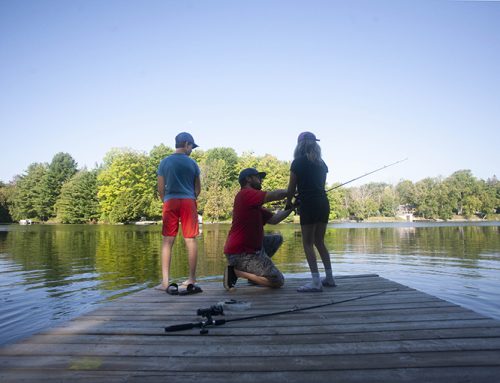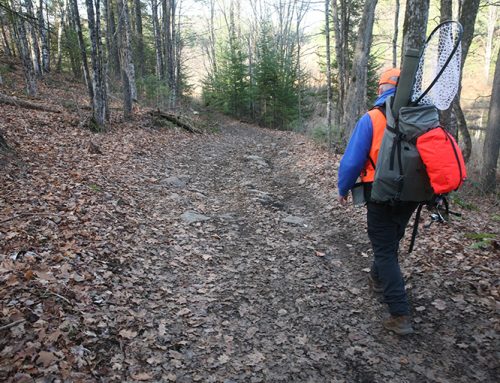
New research published yesterday in the Canadian Journal of Zoology has found that eastern coyotes and eastern coyote-wolf hybrids do prey on adult moose, which goes against long-held and scientifically-backed beliefs.
In the study, conducted in Wildlife Management Unit 49 in central Ontario, 4 packs ranging in size from 2 to 5 animals were found to have killed moose.
Researchers identified one moose to be about 20 months old and another to be about 20 years old. They believe that younger moose are more susceptible to coyote and hybrid attacks due to inexperience, and older moose are targets because of “deteriorating body condition.”
Opportunistic hunters
When it comes to taking down a grown moose, eastern canids are smart about it.
“Coyotes and coyote-wolf hybrids probably prey on moose opportunistically and only when circumstances are favourable,” said lead researcher Dr. John Benson, who was a PhD student in the Environmental and Life Sciences Graduate Program at Trent University when the research was conducted. “For instance, when snow is deep and a hard crust forms on top, this impedes the ability of moose to travel and gives the lighter coyotes and hybrids an advantage because they can travel on top of the snow.”
Other favourable circumstances included: on steep slopes, and in areas where medium-sized trees were moderately dense.
“I wasn’t overly surprised [by these findings],” said Benson. “The eastern coyotes and eastern coyote-wolf hybrids in the area are relatively large compared with coyotes in western north America and not that much smaller than eastern wolves in Algonquin Park. We knew already that eastern wolves were capable of killing moose so it made sense to me that eastern coyotes and the eastern coyote-wolf hybrids also occasionally killed moose.”
Not common
“Killing of adult moose by eastern coyotes and coyote-wolf hybrids appears to be relatively rare and probably does not pose a threat to moose populations in central Ontario,” explained Benson. “From the perspective of a pack of coyotes or hybrids, killing even a single moose during a winter is very beneficial and goes a long way towards helping them meet their energetic demands.”
During the study, the researchers found that a pack of two coyotes spent some or all of 18 days feeding on a moose that they killed.
The authors don’t believe that the moose population in central Ontario is negatively affected by this predation. This is in line with recent studies that have shown that populations in WMU49 and nearby Algonquin Provincial Park are increasing and that both adult and calf moose survival is relatively high.
This research was a collaborative project between the Ontario Ministry of Natural Resources and Trent University in the winters of 2008-2009 and 2009-20010. The predation study was part of a larger study on ecology, demography, and hybridization of wolves and coyotes in and around Algonquin Park, which was conducted from 2004 to 2011.






Leave A Comment